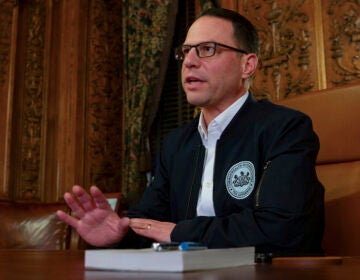National feuds a poor filter for viewing local issues
The recently concluded political conventions were much mocked.
Think of Clint Eastwood’s doddering dialogue with an empty chair. Or Jennifer Grantholm’s gesticulating impersonation of an airline attendant on speed.
But amid the pomp and palaver, the conventions really did frame the national election as a stark philosophical choice.
The Democrats tend to see modern capitalism as a fount of problems, and government as a needed check on those woes. The Republicans see government as the problem, and free enterprise as the all-purpose cure.
Nothing much new there, except the divide has become noisier and more barbed.
I watched the conventions from the sunny South. Upon returning to Philadelphia amid school openings and rush-hour traffic jams, this thought struck me:
The divided framework of national politics isn’t a very useful way to look at local issues. It distorts more than it reveals. For instance:
The evidence that further cuts in already low federal tax rates would spur much economic growth is pretty thin.
But the more uncompetitive your tax system is, the more economic boost you get from fixing it. For years, a certain brand of Philadelphia progressive has tried to link any effort to fix the city’s Byzantine tax structure to the discredited supply-side fantasies of George W. Bush and others.
Good sound bite, terrible logic. Philadelphia’s tax code long ago posted a “Keep Out” sign to entrepreneurs. So the city stands to benefit far more from tax cutting than a deficit-ridden nation whose richest taxpayers are already sitting on a mountain of cash.
The same with city schools: Opponents of the current reform efforts tie them too readily to the glib rhetoric of national school-choice ideologues who really do want to dismantle public education. We need create a space where pragmatic spirits who do care about poor children can suggest innovations that might help without getting slammed as money-grubbing privatizers.
Similarly, some tycoons clearly want to get rid of government rules so they can make a bundle while pawning the costs of their behavior off on the rest of us.
But that does not take away this point: Regulations can be designed poorly and applied capriciously. Philly has long specialized in that set of dumb moves. You don’t have to be disciple of Ayn Rand to insist the city should clean up its regulatory act.
So go ahead, pick your side in the national debate. But please don’t let that blind you to the facts of the local scene.
WHYY is your source for fact-based, in-depth journalism and information. As a nonprofit organization, we rely on financial support from readers like you. Please give today.




